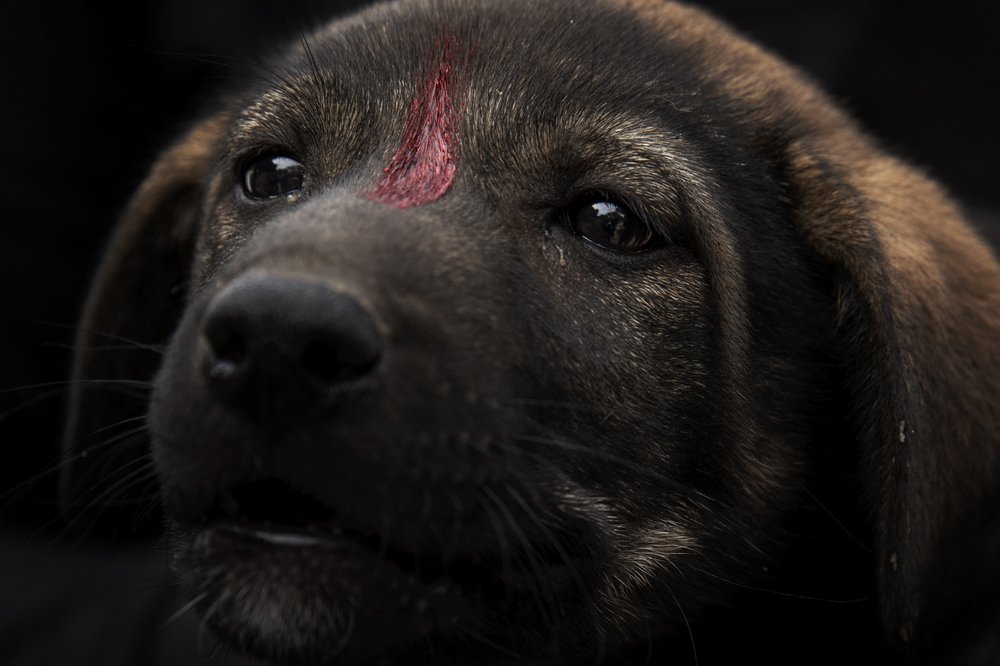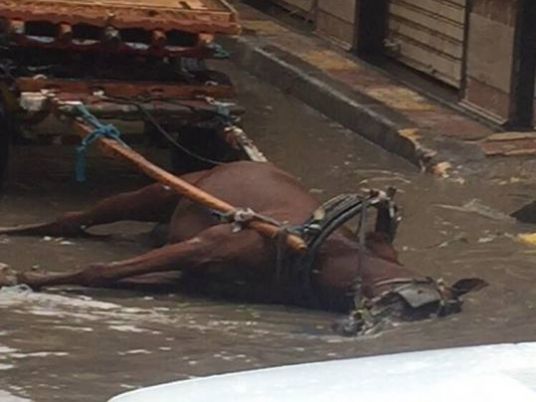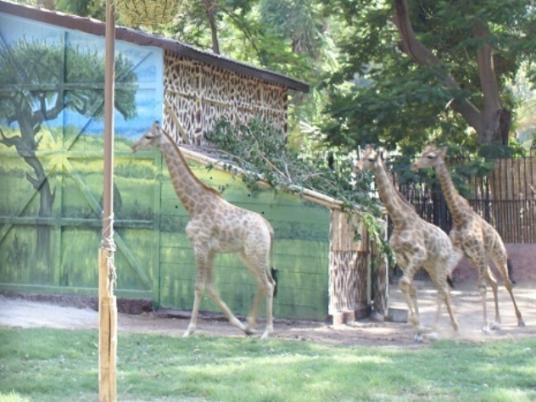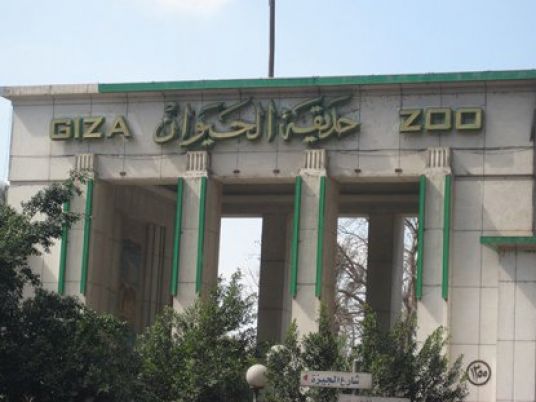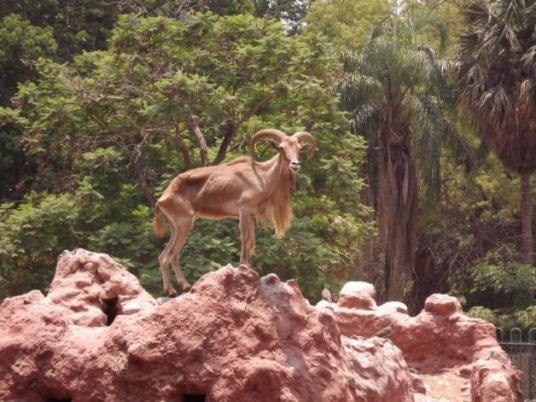
Animals in the country’s zoos suffer from injuries, untreated diseases and severe starvation, according to animal welfare group “Occupy for Animals.” The group has started a campaign on its website demanding the shutdown of seven government zoos, calling them “hell holes” that shame Egypt.
The website shows a set of photos depicting mistreated or wounded animals in zoos around the country. Among them: severely injured wolves in Fayoum Zoo, a baboon living in a small, dirty cage in Tanta Zoo, a deer severely infected by skin disease at Giza Zoo, a starving lion and a camel suffering from a tumor at Alexandria Zoo. The shocking photos have sparked anger among Internet users in Egypt and beyond.
In the wake of the campaign, users created Facebook pages such as “Help rescue animals in Egypt zoos” and “Please help us save the lions, tigers and wolves that are starving in Egypt’s zoos” to direct authorities’ attention to suffering animals.
Dina Zulfikar, one of the country’s most dedicated animal welfare activists and a member of the central zoos supervision committee, says the calls echo her own activism.
“I have been calling and lobbying to revitalize the government zoos in Egypt for years,” Zulfikar says. “I wanted the zoo authorities to close down the zoos and turn them into botanical gardens so the animals could be transferred elsewhere and be safe.”
Zulfikar says she is deeply concerned by the number of violations happening in these zoos and the lack of care and attention to the wildlife.
The animals are kept in cages with concrete floors that are not covered in leaves or sand, she says. Elephants are chained with ropes that are less than a meter long, and felines are often harassed and poked with iron rods by cage keepers so that they roar in front of the visitors.
Modern zoos, Zulfikar says, have two main roles: conservation and education. Zoos must be considered rescue centers for endangered species that are threatened with extinction or stray animals that have no place to live.
Zoos should also inform the public about animals by letting them watch how they behave, she says. But, she says, government zoos in the country are incapable of providing care for the animals and must leave the mission of protecting wildlife to the Environment Ministry, in collaboration with specialized vets.
According to Zulfikar, government zoos sell animals to private places such as circuses and private zoos without making sure these places have the minimum standards animals require to remain healthy. They also allow visitors to take photos with lion cubs and baby chimpanzees, even though these animals can transfer certain diseases to humans.
Giza Zoo could be considered paradise compared with other government zoos, because it receives the largest budget and has the most senior vets. But Zulfikar says Giza Zoo does not even have a fluoroscope device to check felines for rotten teeth, or any other tools necessary for periodic tests on animals.
Its location is very polluted, she adds, saying it is no longer appropriate to keep animals there.
Other experts agree with Zulfikar and say government zoos are not fit for purpose. Dr. Omar Tamam, natural reserves professor and head of the Monufiya University Natural Resources Survey Department, explains why government zoos fail.
“These zoos are all built on very limited pieces of land that can only be used for breeding a small number of animals,” he says. “Although Giza Zoo is the biggest one and contains more than 200 different species of animals, its 80 acres of land aren’t suitable for breeding more than 10 species.”
The country’s zoos do not provide animals with the environments they need to survive and breed, Tamam says.
“The air is polluted, the water is contaminated, the cages are narrow and the nutrition is really bad, as zoos purchase the cheapest food on the market. In addition, central zoos always send the deformed and old animals to the regional zoos,” he says.
However, Dr. Fadya Abbas, the most senior veterinarian at Giza Zoo, says the allegations are not true. She says international organizations are satisfied by the zoo’s performance. According to Abbas, the zoo has joined the African Union of Zoos and is about to join the International Federation of Zoos.
She says the animals are always provided with enough food and healthcare, and have longer lives than animals in the wild. “They eat better than people who live in slum areas,” she says.
Abbas says it’s normal for male animals to fight during mating season and wound each other, and for old animals to lose their teeth and tusks, which affects their nutrition. “We can’t provide them with dentures, but keepers help them overcome this problem by cutting the food into small pieces and putting it in with long iron rods to feed them in their mouths,” she says.
She accuses campaigners of aiming to distort the image of Egyptian zoos and deliberately taking photos of wounded animals. She also denies the allegations that keepers poke animals with iron rods to make them roar.
But Tamam says it is not normal for animals in zoos to fight and wound each other.
“The animals behavior in Egyptian zoos is totally abnormal,” he says. “Animals hurt each other in three cases: when they aren’t fed well, when they are kept in narrow places and sometimes during the mating season. However, the photos taken for the wounded wolves in Fayoum Zoo show carelessness, because wolves don’t hurt each other during mating season.”
Abbas says one of the main problems they face is that Egyptian law does not allow euthanasia of old or sick animals, unlike zoos outside the country. She says the zoo’s vets are qualified and are sometimes sent for training courses from well-known experts abroad.
Some have accused zoos of allowing illegal trafficking of animals, but Abbas refutes these claims, saying all the animals have microchips for identification to prevent trafficking. She defends the zoo’s practices, saying the animals are treated very well and the activists only focus on negative things.
“We are very sad because no one appreciate us,” she says. “We are trying to develop the zoos and make a lot of repairs and improvements, and we need people to help and support us instead of attacking the zoos and asking for them to be shut down.”
Dr. Alaa Morsy, technical office manager of the General Organization of Veterinary Services, also criticizes the animal welfare activists. He says he does not see any point in attacking government zoos.
“Every animal is exposed to be infected by diseases, and every animal dies like everything else on the planet,” he says. “When they saw the animals in cages, they considered this mistreatment because they want the animals to live in open parks, like a safari.”
He says activists don’t consider that such a park would cost billions of pounds that Egypt doesn’t have.
“If we turned it into a safari, as they want, the ticket wouldn’t be less than LE250 and the poor people would be deprived from the enjoyment of watching animals,” he says.
Morsy says all the zoos’ vets and keepers are experts who know how to deal with animals. “When animals get sick, we take all the required procedures and treat them in a suitable way,” he says.
Meanwhile, a group of animal welfare activists submitted a proposal to the government for the establishment of a national park, planned to be a conservation and rescue center in which people would be able to see animals living in their natural environments.
Because this would require land encompassing more than 500 acres, they need the government’s permission to start construction.
“This project may be a glimpse of hope for those poor animals,” Zulfikar says.
This piece was originally published in Egypt Independent's weekly print edition.



